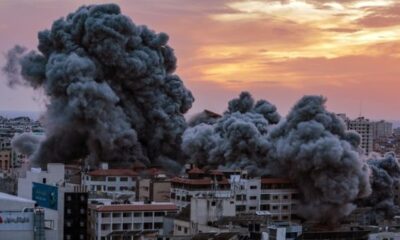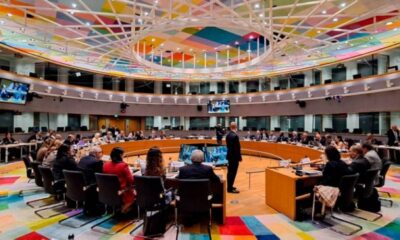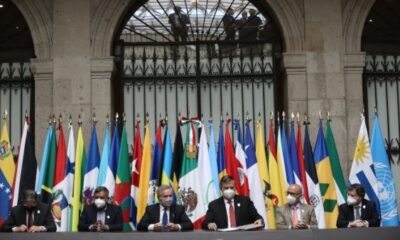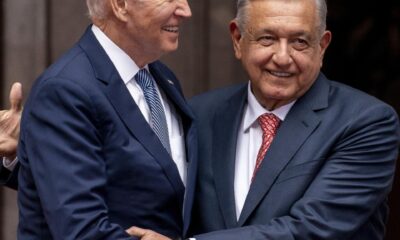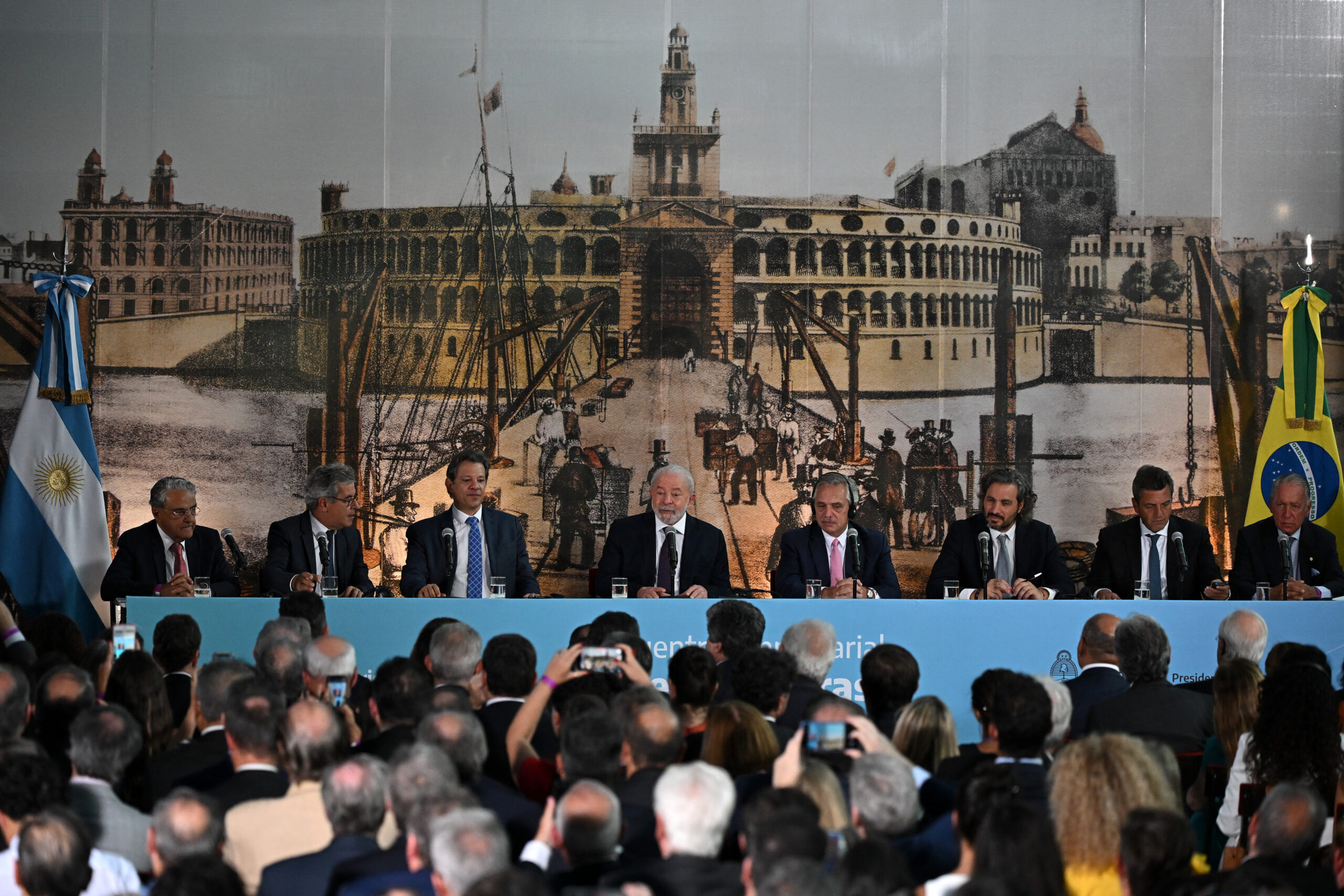Internacionales
Agreement to promote regional development to address migration
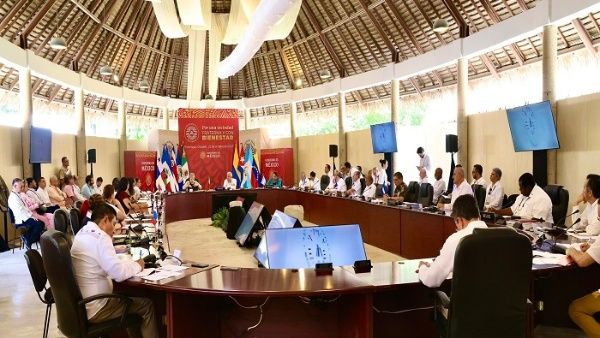
October 23 |
Latin American countries participating in the Palenque Summit on migration, held this Sunday in the Mexican state of Chiapas (southwest), agreed to develop and implement an action plan for development to address the structural causes of migration in the region.
The meeting was attended by leaders and high-level representatives from Belize, Colombia, Costa Rica, Cuba, Ecuador, El Salvador, Guatemala, Haiti, Honduras, Panama and Venezuela.
Mexico’s Secretary of Foreign Affairs, Alicia Bárcena, read the communiqué-declaration of the “Palenque Meeting: for a fraternal neighborhood with well-being”, which defined that the main causes of the growing irregular migratory flow faced by the region are structural and of economic, political and social origin, in addition to factors linked to climate change.
The participants considered that the current exodus is also caused by external factors, such as unilateral restrictive measures of a criminal nature applied by third countries, which affect entire communities and, to a greater extent, the most vulnerable population groups.
In addition, they warned of the need to address irregular migration from a human rights (HR) perspective, in order to address its structural causes and regulate migratory flows jointly.
In light of this diagnosis, the heads of state and high-level representatives of the 11 countries agreed to develop a development action plan to address the structural causes of irregular migration in the region, which will be based on priority objectives and an understanding of the realities of each country.
Priority areas were defined as: food production and recovery of the agricultural sector, environmental preservation, employment generation, energy security (including migration to clean energy and decarbonization processes), health self-sufficiency, intra-regional trade and investment, and combating organized crime, corruption and human trafficking.
The heads of state and government, as well as high-level representatives attending Chiapas, urged an end to unilateral coercive measures and emphasized that they are contrary to international law.
The plan of action included the promotion of intra-regional trade and preferential tariffs for basic goods and services; the call for countries of origin, transit and destination to respect the right to migrate, safeguard the lives of migrants and create regularization options; and a call for destination countries to adopt migration policies in line with the regional reality and abandon selective policies, such as those that allow the regularization of certain nationalities.
It also called for a decisive contribution to Haiti’s sustainable development, the reestablishment of its human security environment and the normalization of its economic, political and social situation.
Other actions that make up this plan are to propose in a coordinated manner that the international financial debt architecture be rethought so that lower income countries achieve a higher level of development and reduce the intention to emigrate, and to request destination countries to expand regular, orderly and safe channels for emigration, with an emphasis on labor migration.
The participants in the Palenque Summit agreed to hold dialogues at the highest level on these issues through a working group to be created by the Ministries of Foreign Affairs. It was made clear that these agreements will be linked to the High Level Meeting on Migration and Development in Latin America and the Caribbean, proposed by Colombia and Mexico, which will take place in the first quarter of 2024.
In addition, they proposed to the governments of Cuba and the United States to hold a comprehensive dialogue on their bilateral relations as soon as possible.
Referring to the meeting, the President of Venezuela, Nicolás Maduro, recalled that the country has faced more than 930 unilateral coercive measures and that during the “Palenque Meeting: for a fraternal neighborhood with well-being” it was demanded that the U.S. and other nations put an end to them.
He expressed that Venezuela will fully support the approved action plan. He highlighted the unity expressed by the participants to adopt a development model and their own path that would result in integration, as the Liberator Simón Bolívar would have wished.
Internacionales
Major winter storm threatens “catastrophic” ice and snow across much of the U.S.
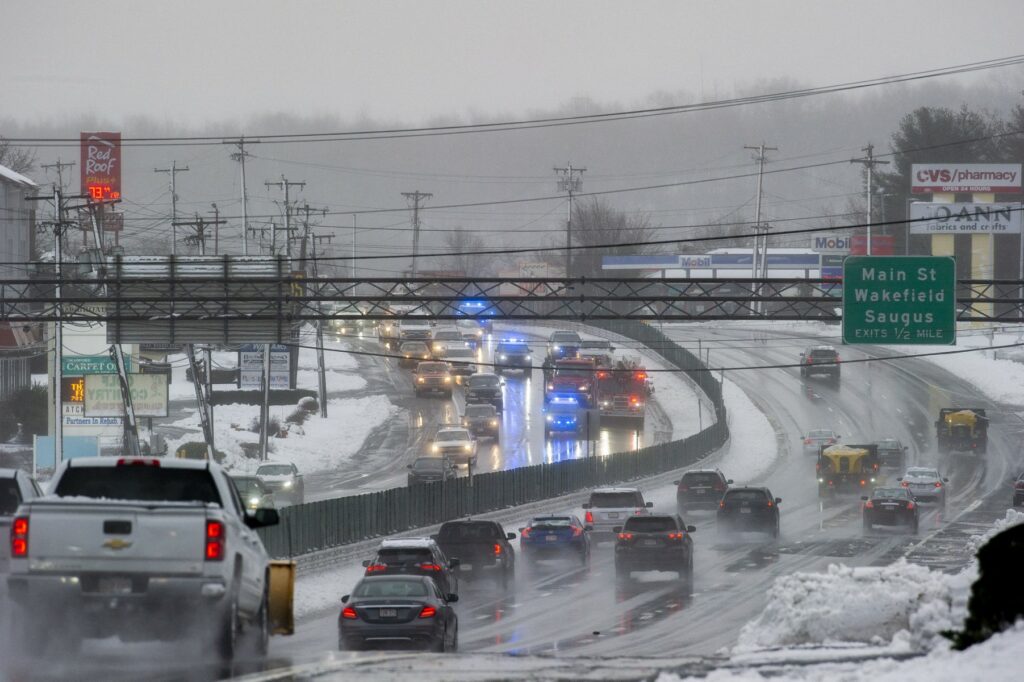
A major winter storm is threatening to blanket large portions of the United States with a dangerous mix of freezing rain and heavy snowfall, potentially creating “catastrophic” conditions across areas home to nearly 160 million people.
Several U.S. states have declared a state of emergency as the Arctic blast advances from the California coast across much of the continental United States, affecting central regions, including the Rocky Mountains and the Great Plains, according to forecasts.
The National Weather Service warned the storm could cause a “catastrophic accumulation of ice,” leading to prolonged power outages, widespread tree damage, and extremely dangerous or impassable travel conditions.
Meteorologist Ryan Maue cautioned that “the next 10 days of winter will be the worst in 40 years in the United States.”
“Think about where you can go, what you can do, and who may need even more help to survive the coming week. This is not an exaggeration or a joke,” Maue said.
He urged residents to prepare for temperatures dropping below -18°C (0°F).
More than 1,500 weekend flights had already been canceled, according to flight tracker FlightAware, including numerous flights in Texas.
In the southern state, many residents still recall the devastation caused by a similar storm in February 2021, which resulted in more than 200 deaths linked to hypothermia, carbon monoxide poisoning, and traffic accidents.
Texas authorities have assured the public that the power grid, which suffered widespread failures during that storm and left millions without electricity, is better prepared to withstand the extreme weather this time.
Internacionales
Juan Orlando Hernández’s family takes time to decide next steps after surprise U.S. release

Ana García, the wife of former Honduran president Juan Orlando Hernández, who was pardoned on Monday by U.S. President Donald Trump after being sentenced in 2024 to 45 years in prison on drug trafficking and firearms charges, told EFE on Wednesday that the family has not yet decided whether he will return to Honduras.
“We have not made any decision about that yet. Everything is still very recent, and as a family we are going to take the time to reflect carefully and make wise decisions thinking about the well-being of Juan Orlando, our children, and all our families,” García said at her residence in Tegucigalpa.
García wore around her neck her husband’s wedding ring, which she has kept since Hernández was held at a special police detention facility known as the ‘Cobras’ on the day of his arrest, February 15, 2022.
“We are still deciding many things. He has just been released, it has not even been 48 hours since he got out. So we are taking things calmly,” she reiterated.
She also explained that since she does not have a U.S. visa — revoked after her husband was requested for extradition following the end of his presidency in January 2022 — she has not been able to see him, but said she is “awaiting some form of communication from the United States” in order to do so.
García declined to reveal where in the United States her husband is currently located, although she stressed that she is confident she will have an opportunity to reunite with him.
Internacionales
One killed, 188 evacuated as wind-driven blaze rips through Kyushu neighborhood
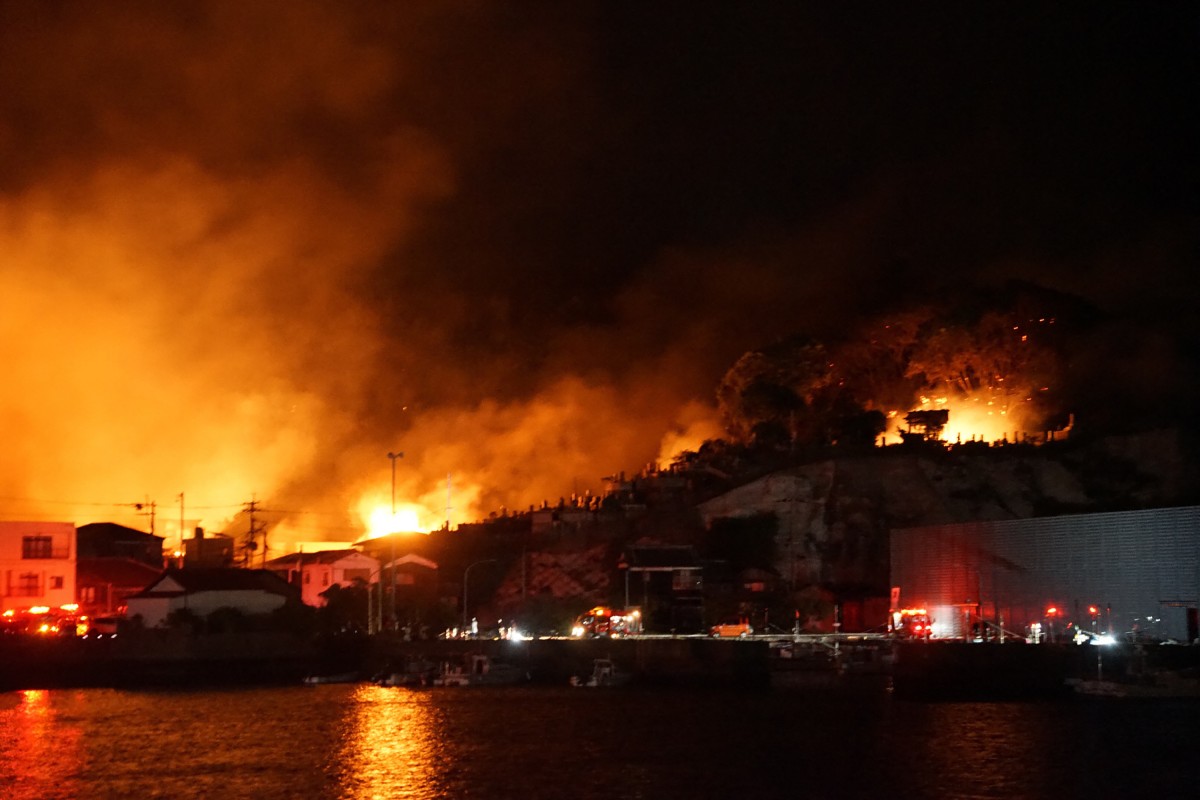
One person died and 188 residents were evacuated after a massive fire swept through at least 170 buildings in a residential area on the island of Kyushu, southern Japan, authorities reported on Wednesday.
The regional government confirmed one fatality. Public broadcaster NHK reported that police, who had been searching for a missing 76-year-old man, found a body inside his home.
Footage recorded on Tuesday night showed firefighters spraying water on towering flames engulfing homes, while residents were escorted to an improvised evacuation center.
“The flames rose so high they turned the sky red. The wind was strong. I never imagined it would spread so far,” a man told NHK.
“I was shaking with fear. I had never seen a column of fire like that,” another witness said.
The fire broke out late Tuesday, with at least 170 buildings affected. According to NHK, the blaze spread rapidly, likely fueled by a lack of rainfall, dry air, and the tightly packed wooden houses characteristic of the area.
-

 Central America5 days ago
Central America5 days agoGuatemala seizes over a ton of cocaine hidden in flour at Pacific port
-

 Central America4 days ago
Central America4 days agoGuatemala Police Arrest Prison Guard Caught in the Act of Extortion
-

 Central America4 days ago
Central America4 days agoHonduras swears in conservative president Asfura after disputed election
-

 International5 days ago
International5 days agoHistoric snowstorm paralyzes Toronto after 60 centimeters of snow
-

 Central America4 days ago
Central America4 days agoBukele leads public trust rankings as UCA survey highlights gains in security
-

 International3 days ago
International3 days agoFootball Fan Killed in Clashes After Colombian League Match
-

 International5 days ago
International5 days agoSpain’s irregular migrant population rises to 840,000, study finds
-

 Central America3 days ago
Central America3 days agoGuatemala President Says Starlink Terminal Found Inside Prison
-

 International4 days ago
International4 days agoDoomsday clock moves to 85 seconds before midnight amid rising global risks
-

 International4 days ago
International4 days agoWinter Storm Fern Leaves 30 Dead and Over One Million Without Power Across the U.S.
-

 International2 days ago
International2 days agoU.S. Senate Rejects Budget, Bringing Government Closer to Shutdown Amid DHS Dispute
-

 Sin categoría4 days ago
Sin categoría4 days agoEight Killed in Series of Armed Attacks in Ecuador’s Manabí Province
-

 International4 days ago
International4 days agoSpain approves plan to regularize up to 500,000 migrants in Historic Shift
-

 International5 days ago
International5 days agoRights group says nearly 6,000 killed in Iran protest crackdown
-

 International3 days ago
International3 days agoRubio Says U.S. Could Participate in Follow-Up Russia-Ukraine Talks
-

 International3 days ago
International3 days agoMissing Spanish Sailor Rescued After 11 Days Adrift in Mediterranean
-

 Sin categoría4 days ago
Sin categoría4 days agoEl Salvador Launches Fourth Year of Ocean Mission to Protect Marine Ecosystems
-

 Central America18 hours ago
Central America18 hours agoPanama Supreme Court Strikes Down Panama Ports Concession as Unconstitutional
-

 International5 days ago
International5 days agoVenezuela frees at least 80 political prisoners, NGO says
-

 International5 days ago
International5 days agoEU launches new probe into X over AI-generated fake nude images
-

 International2 days ago
International2 days agoStorm Kristin Kills Five in Portugal, Leaves Nearly 500,000 Without Power
-

 Central America18 hours ago
Central America18 hours agoU.S. and Guatemala Sign Trade Deal Granting Zero Tariffs to Most Exports
-

 International2 days ago
International2 days agoTrump Says Putin Agreed to One-Week Halt in Attacks on Ukraine Amid Extreme Cold
-

 International2 days ago
International2 days agoMan Arrested After Vehicle Crashes Into Jewish Institution in Brooklyn
-

 International5 days ago
International5 days agoSevere winter storm grips U.S., leaves multiple dead as extreme cold persists
-

 International5 days ago
International5 days agoFrance debates ban on social media for children under 15

























